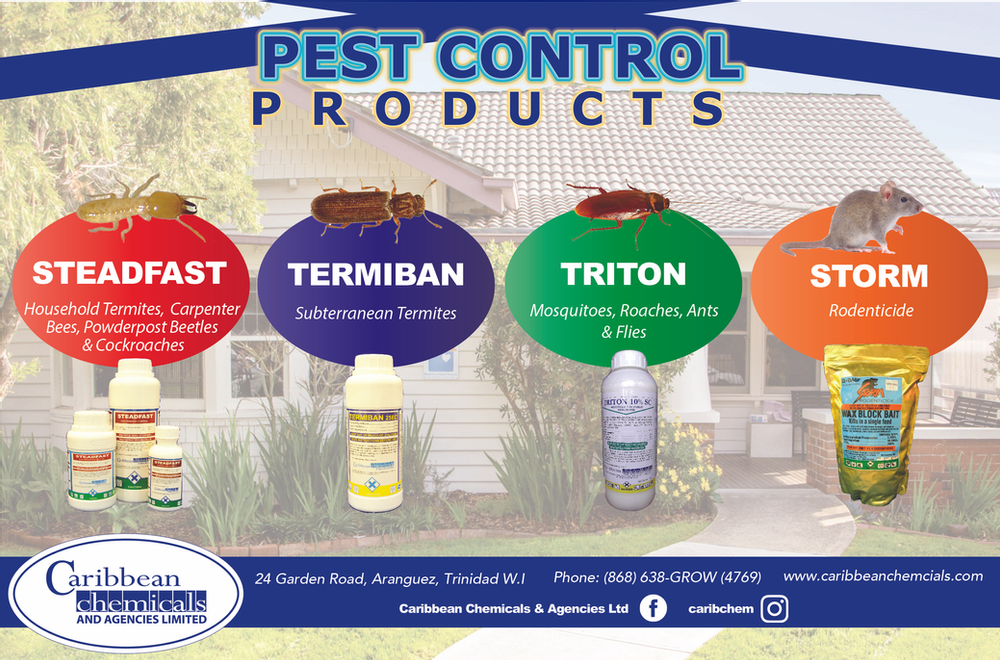BUG-Off!: Volume 1, Issue 1
Author: Shawn Kirk – Medical Laboratory Superintendent, National Contact Point for Biological Weapons Convention. National Focal Point for Biosafety and Biosecurity, Insect Vector Control Division, Ministry of Health, Trinidad.

Biosecurity is the management of risks to the economy, the environment and the community of pests and diseases entering, emerging, establishing or spreading. It can be explained as the set of precautions taken to minimise the risk of spreading or introducing a pest or infectious disease.
Biological threats have the potential to kill millions, cost millions in economic losses, and create political and economic instability, whether naturally occurring, accidental or manmade. The risk of a catastrophic biological event is magnified by global travel, urbanisation, terrorist interest in weapons of mass destruction, as well as rapid advances in technology, including risks posed by newly developed or manipulated pathogens with pandemic potential. All of these factors, taken together, create an urgent need to strengthen biosecurity, reduce biological risks posed by advances in biotechnology, create new approaches to improve infectious diseases surveillance and identify and fill gaps to measurably strengthen global health-security capabilities.
A historical lack of biosecurity measures has allowed diseases, pests and invasive species to colonise our islands, often with devastating consequences on the natural flora and fauna, as well as crops and domestic animals.
However, it is difficult to predict where and when the next biosecurity threat will come from. Will it be one that plagued other countries – like Ebola, or a virtually, brand-new disease (COVID-19) that emerges in the Region? Even among the known diseases that exist at the Human-Animal interface, many questions remain. Public health scientists don’t yet have all the answers. We are just beginning to understand the Coronavirus, figuring out which animal is the disease’s reservoir, and how transmission began. There is a clear need to better understand infectious disease that can spill over and affect humans so that we can take better steps to prevent pandemics from happening. We need to analyse existing diseases to understand which diseases may represent a higher risk of spilling over. Each subsequent biosecurity threat in our region constitutes a learning experience for us.
With more than four million cases worldwide, the rapid spread of the COVID-19 to our shores and to more than 184 countries has demonstrated now, and in the future, that a disease threat anywhere is a disease threat everywhere. In today’s interconnected world it takes only thirty-six hours for a fast-moving pathogen to spread around the globe – a threat that is even more real when 70% of the world still remains underprepared to prevent, detect and respond to a public health emergency.
The protracted COVID-19 crisis has placed enormous pressure on the global food chain as unprecedented quarantine orders and border closures have disrupted trade and created labour shortages. The United Nations World Food Programme said that the world “could be facing multiple famines of biblical proportions,” and “there is a real danger that more people could potentially die from the economic impact of COVID-19 than from the virus itself.” COVID-19 is a health crisis, but it could also lead to food security crisis particularly if no vaccines or effective therapeutics are found within a reasonable timeframe.
In the midst of this pandemic we are also mindful that other public health threats still exist. Mosquito borne diseases, such as, Dengue, Chikungunya and Zika, have placed an additional burden on our National health care systems, and negatively impact social and economic development. As individuals and communities, we each have a role to play in preventing an upsurge of mosquito borne diseases. Stay tuned for the continuation of this article in the 2nd issue of BUG-Off!
In conclusion, when this COVID-19 ends we may find that we have become more like the people we wanted to be, we were called to be, we hoped to be, and may we stay that way – better for each other because of the worse.




0 Comments